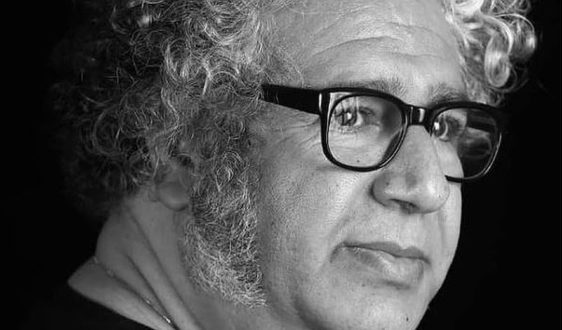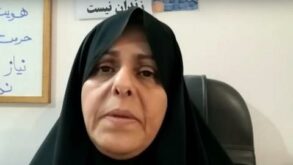Iranwire – A political prisoner who joined the seven-strong hunger strike protesting against the death of Baktash Abtin has sent IranWire an audio file from prison narrating what happened in the days before the poet’s transfer to hospital. He has also confirmed, as others suspected this week, that he and two other hunger strikers were not taken for medical treatment as the guards claimed, but beaten and transferred to another facility.

Abtin, a prominent member of the Iranian Writers’ Association, contracted Covid-19 at Evin Prison and died on January 8 this year. Fellow inmate Hamid Haj Jafar Kashani joined the initially dry hunger strike demanding answers and accountability over the tragedy, which they say was avoidable and the result of deliberate medical neglect.
In the recording sent to IranWire, Haj Jafar Kashani says Baktash Abtin had been in a feverish state, burning up and registering an average temperature of 39.7 degrees for four days straight. Evin Prison medics, he said, only offered him a few painkillers, and initially refused to send him to hospital.
“On the fourth day of his high fever,” the political prisoner says, “we saw seen him sitting in a chair in front of a guard. He was trembling and saying, ’I am dying, God help me, save me.’”
The Even Prison doctor, Haj Jafar Kashani says, would not transfer Baktash Abtin to hospital on the grounds that he was a “security convict” and they needed permission from the “security prosecutor”. It was on the assistance of a deputy head guard that Abtin was finally taken to an acute care facility. In his testimony, Haj Jafar Kashani describes the death as a “murder”.
Hunger Strikers Punished on Pretext of Medical Care
In the aftermath, the political prisoner said, “A number of convicts sat in the hall, then in the Hosseiniyeh [mosque] of Evin Prison, declaring that the Prisons Organization should admit its failure to treat Baktash Abtin and send him to hospital, and formally apologize in the national media.”
Following the sit-in, and the prison director’s refusal to meet with the protestors, seven of them decided to go on hunger strike.
In the message to IranWire, Hamid Haj Jafar Kashani also confirmed that this weekend, he and two other hunger strikers, Mahmoud Ali Naghi and Asghar Hassani Rad, were told they were ill and had to be taken to hospital. But as their cellmates feared, they were instead beaten and transferred to Greater Tehran Penitentiary.
On the way to Iran’s biggest prison, their vehicle passed by Tehran’s Behesht-e Zahra Cemetery complex. Haj Jafar Kashani says the soldiers accompanying them joked that they might simply kill them and bury them there.
Haj Jafar Kashani adds that earlier in the week a fourth Evin Prison inmate, Mohammad Abolhassani, had also been transferred to Greater Tehran Penitentiary for chanting anti-government slogans in the wake of Baktash Abtin’s death.
Meanwhile inside Evin, the remaining hunger strikers have switched to a wet hunger strike – allowing them to drink water, preserving their strength for longer – so that prison guards cannot use the same pretext to split them up.
At the end of his audio message, Hamid Haj Jafar Kashani says that news of the Evin Prison hunger strike has now reached other jails across Iran. Two women he names as Shakila Monfared and Alieh Motalebzadeh have reportedly gone on hunger strike at Qarchak Women’s Prison in Varamin, as well as Sina Beheshti in Greater Tehran Penitentiary.
 Shabtabnews In this dark night, I have lost my way – Arise from a corner, oh you the star of guidance.
Shabtabnews In this dark night, I have lost my way – Arise from a corner, oh you the star of guidance.



